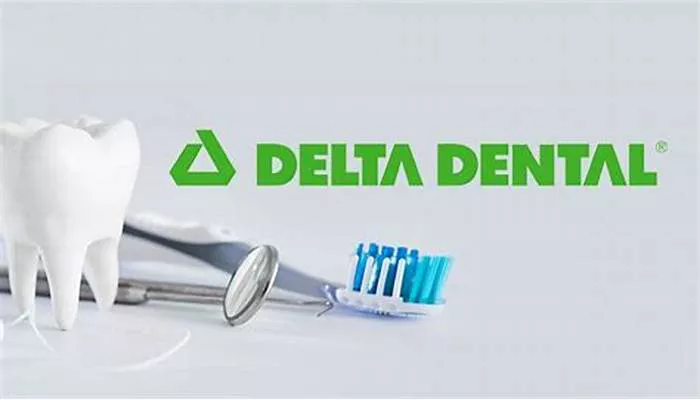Delta Dental insurance provides essential dental coverage for individuals and families. As with any insurance plan, understanding how to renew your coverage is crucial to maintaining continuous benefits. This article will detail the renewal process for Delta Dental insurance, including important deadlines, payment options, and considerations for policyholders.
What Is Delta Dental Insurance?
Delta Dental is one of the largest dental insurance providers in the United States. It offers a variety of plans tailored to meet the needs of individuals and families. These plans typically cover preventive, basic, and major dental services, ensuring that members have access to necessary dental care.
Renewing your Delta Dental insurance is vital to ensure that you continue to receive these benefits without interruption.
The renewal process is generally straightforward, but it is essential to understand the specifics of your policy.
How to Renew Delta Dental Insurance
Renewing your Delta Dental insurance involves several key steps. Here’s a detailed breakdown of what you need to do:
1. Review Your Current Policy
Before renewing your insurance, take the time to review your current policy. Understand what services are covered, any waiting periods, and your premium costs. This review will help you make informed decisions about your coverage.
2. Check Renewal Dates
Delta Dental policies typically renew annually. It is crucial to be aware of your renewal date, which is usually specified in your policy documents. You should receive a notice from Delta Dental at least 30 days before your renewal date, informing you of any changes to your premium or benefits.
If you do not receive this notice, it is advisable to contact Delta Dental directly to confirm your renewal details.
SEE ALSO: How Much Does A Tooth Implant Cost with Delta Dental Insurance
3. Payment of Premiums
To keep your coverage active, you must pay your premiums on time.
Delta Dental policies usually have a grace period of 31 days for premium payments. During this time, you will still be covered, but it is essential to make your payment to avoid losing your coverage.
Payment Options: Delta Dental offers several payment options. You can choose to pay your premiums monthly or annually. If you prefer, you can set up automatic payments from your bank account to ensure that your premiums are paid on time.
Payment Methods: Payments can typically be made via check, credit card, or electronic funds transfer. If you choose to pay by check, be sure to mail it early enough to arrive by the due date.
4. Adding or Removing Dependents
If you have changes in your family situation, such as marriage, divorce, or the birth of a child, you may want to add or remove dependents from your policy. Delta Dental allows you to make these changes during the renewal process.
Adding Dependents: If you want to add a dependent, you must complete an application within 31 days of the qualifying event (e.g., marriage or birth). The new dependent will be added to your policy on the first day of the month following the event.
Removing Dependents: If you need to remove a dependent due to divorce or another reason, you should notify Delta Dental as soon as possible. This ensures that your policy reflects the current situation and that you are not paying for coverage you no longer need.
5. Communicating with Delta Dental
If you have any questions or need assistance during the renewal process, do not hesitate to contact Delta Dental’s customer service.
They can provide guidance on your policy, help you understand any changes, and assist with adding or removing dependents.
You can reach Delta Dental through their member services hotline or via their website. Having your policy number handy will help expedite the process.
Understanding Changes in Premiums And Benefits
It is essential to be aware that Delta Dental may change your premiums or benefits upon renewal. If there are any changes, Delta Dental is required to notify you at least 30 days before the renewal date.
Rate Changes: If your premium increases by 25% or more, Delta Dental will notify you at least 60 days in advance. This gives you time to decide whether to continue with the policy or explore other options.
Benefit Changes: Changes in benefits may also occur. Review any modifications carefully to understand how they may affect your coverage. If you find that the new benefits do not meet your needs, consider discussing alternative plans with Delta Dental.
Grace Period And Policy Reinstatement
Delta Dental policies come with a grace period for premium payments. If you miss a payment, you have 31 days to make it without losing coverage. During this grace period, you will still be covered for dental services.
If your policy is terminated due to nonpayment, you may be able to reinstate it within one year by paying the overdue premium. However, any dental services performed during the lapse in coverage will not be covered.
Cancellation of Coverage
If you decide not to renew your Delta Dental insurance, you must provide written notice to Delta Dental at least 30 days before the renewal date. This notice can be sent electronically or via mail.
Be aware that if you cancel your coverage, you may not be eligible to re-enroll in an individual dental plan for 12 months.
This waiting period applies to new applications and may require you to undergo waiting periods for certain services again.
Conclusion
Renewing your Delta Dental insurance is a straightforward process that requires attention to detail. By reviewing your current policy, understanding payment options, and communicating with Delta Dental, you can ensure that your coverage continues without interruption.
It is essential to be proactive about your dental insurance renewal. Keep track of important dates, understand any changes to your premiums or benefits, and make necessary adjustments to your policy as your family situation changes.

